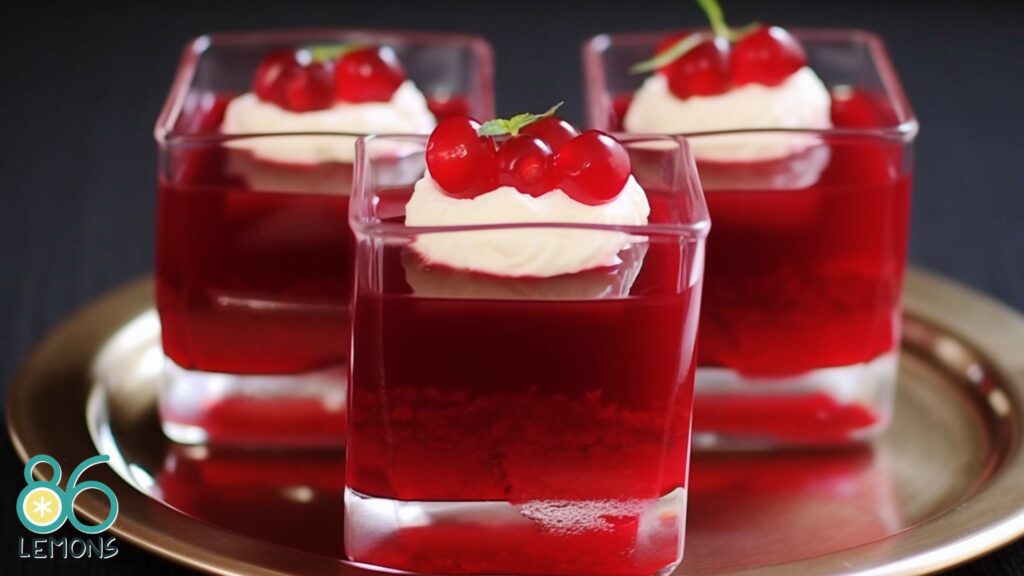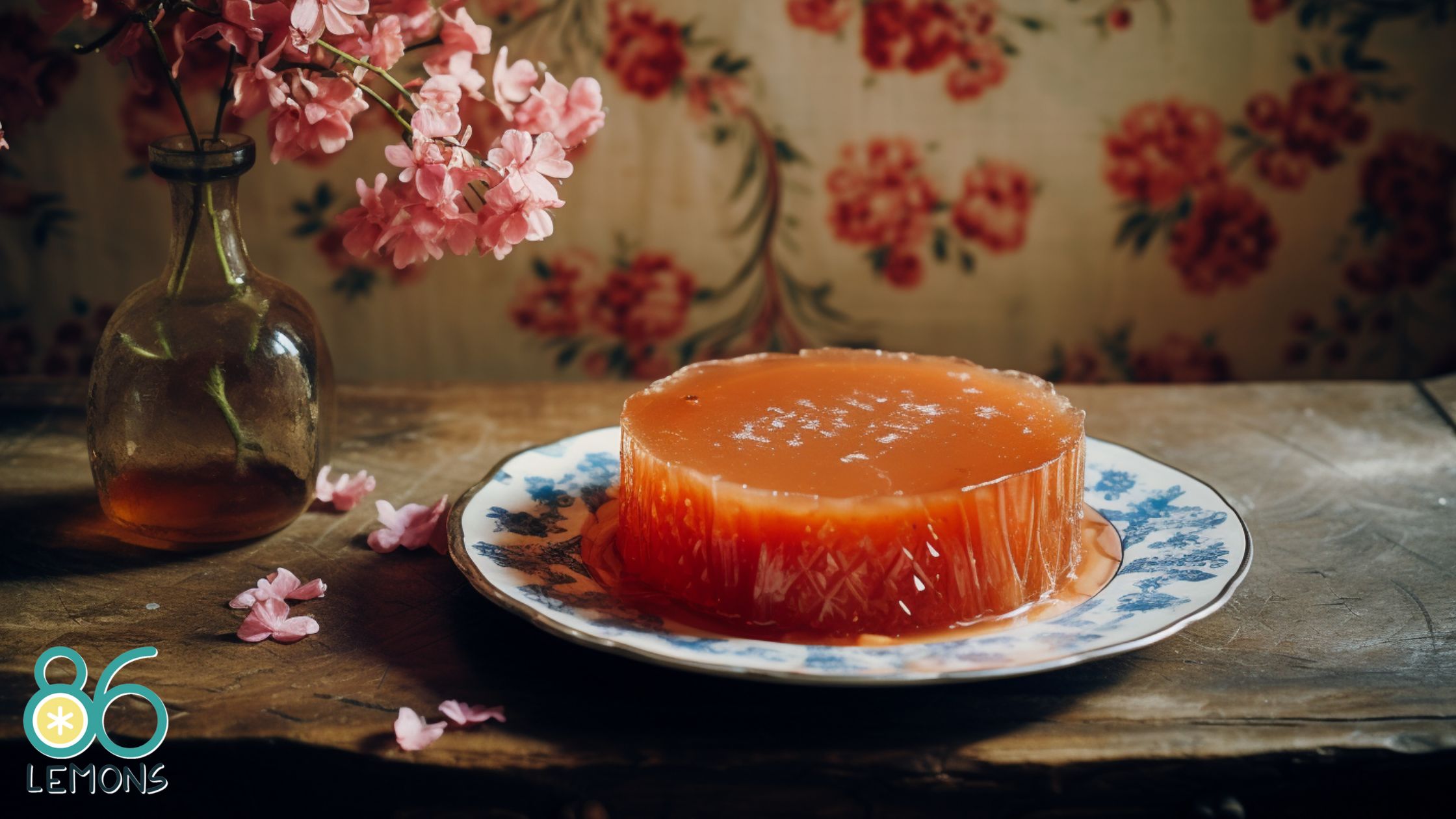Discovering vegan substitutes for gelatin can be an exciting journey of culinary exploration, especially for vegans and vegetarians who aim to avoid animal products. Gelatin, a common gelling agent, is traditionally derived from animal collagen, which poses a dietary conflict for many.
Thankfully, there are numerous plant-based alternatives that not only mimic the properties of gelatin but also widen the scope for creative vegan cooking. Used from desserts to vegan omega 3 supplements, you’ll be surprised with how widespread their utility is.
As you delve into the world of vegan gelatin substitutes, you’ll find options like agar-agar, derived from algae, which boasts a firm texture and versatility in recipes. Other substitutes like carrageenan, sourced from edible seaweed, offer a unique way to create a range of textures without using animal-based ingredients.
Numerous other options are available, making adapting classic dishes to fit a vegan diet easier while respecting ethical consumption choices.
Key Takeaways
- Plant-based gelatin alternatives provide an exciting array of options for vegan cooking.
- Agar-agar and carrageenan are popular substitutes that mimic gelatin’s textural properties.
- Vegan gelatin substitutes are key to adapting traditional recipes for a plant-based diet.
Understanding Gelatin and Veganism
Get ready to explore the world of gelatin and unveil how it intersects with vegan values! You’re about to discover not just what gelatin is but why you, as a vegan, might avoid it and how crucial vegan substitutes are in maintaining a cruelty-free lifestyle.
What is Gelatin?
Gelatin is a protein derived from collagen extracted from animal parts such as bones, tendons, and ligaments. It’s commonly used for its gelling properties in foods like jellies, desserts, and candies.
This translucent, flavorless substance has a unique ability to create a jelly-like consistency that has been a staple in many kitchens.
Why Vegans Avoid Gelatin
For vegans, avoiding gelatin is non-negotiable. Gelatin is an animal by-product, and its production is in clear opposition to vegan principles, which reject the use of any animal-derived ingredients.
The controversy arises due to the origin of gelatin from animals, which involves processes that vegans are against.
The Importance of Vegan Substitutes
Finding vegan gelatin substitutes is vital for those wishing to enjoy similar textures and food consistencies without compromising their ethical beliefs. Agar agar, as a jellying agent obtained from red algae, is a favorite among many.
Another great plant-based alternative, carrageenan, hails from edible red seaweed and has centuries of use as a thickener in British foods, offering a similar texture in vegan recipes. These substitutes are key to making veganism an accessible and enjoyable dietary choice.
Popular Vegan Substitutes for Gelatin
Exciting times await in your kitchen as you explore a world of vegan gelatin substitutes! Each brings a special twist to your culinary creations, from sea-derived wonders to fruit-based marvels.
Agar-Agar: A Sea-derived Alternative
Derived from red algae, agar-agar is a powerhouse gelling agent that gives your vegan jello a firm texture. You can find it as flakes, powder, or bars, and it works brilliantly in your recipes that call for a sturdy set, like panna cotta or a fruity terrine.
Carrageenan: Red Seaweed Extract
Another gem from the sea, carrageenan is extracted from Irish moss and has been a traditional thickener for ages. It’s a fabulous vegan gelatin that gives a smooth texture to your desserts and is often used in dairy-free cheese.
Pectin: Fruit-based Gelling Agent
Pectin is a natural accomplice found in the cell walls of fruits. It’s what gives jams and jellies their delectable spreadability. Pectin is a vegan gelatin endowed with a fruit’s gelling gifts, perfect for sweet concoctions.
Other Noteworthy Substitutes
Your vegan pantry might already host a few of these versatile stand-ins:
- Guar Gum: A thickening champion, ideal for cold foods.
- Xanthan Gum: A by-product of bacterial fermentation, lending elasticity and thickness where it’s due.
- Cornstarch is a go-to for thickening sauces, gravies, and dessert fillings.
- Locust Bean Gum: Often paired with other gelling agents to enhance their texture.
Embrace these vegan gelatin wonders and watch your culinary repertoire expand joyfully and easily!
Incorporating Vegan Gelatin Alternatives into Recipes
Switching to vegan gelatin substitutes is a breeze, unlocking a world of plant-based possibilities in your kitchen! Adjust the quantities as vegan gelatin alternatives may be set differently than traditional gelatin.
Desserts and Sweets
Agar Agar is your go-to for making show-stopping vegan jello and panna cotta. A powerhouse of a gelling agent, you’ll find it perfect for puddings and jellies.
Begin by dissolving the agar in liquid and bring it to a boil to activate its gelling properties before setting it into your desired molds.
For marshmallows and mousses, consider vegetable gums, like xanthan or guar gum, which act as stabilizers and provide that requisite fluffiness. Start with small amounts, as overuse can produce an undesired gooey texture.
Savory Dishes and Sauces
Are you looking to thicken your vegan roasted pumpkin soup? Arrowroot powder or cornstarch can become a thickener when mixed with a cold liquid and added to your hot dishes. They create that smooth, rich texture without altering the flavor.
Incorporate pureed vegetables or silken tofu into sauces and baked goods for added thickness and binding without compromising creaminess. Blend these until smooth and mix them into your recipe for a seamless texture.
Special Considerations for Texture and Firmness
Each vegan alternative behaves uniquely. Carrageenan is ideal for dairy-like textures in vegan ice creams and vegan cheese. It creates a supple, creamy consistency – fantastic for those longing for that familiar dairy feel.
Are you customizing the firmness of your gummy candies or preserves? Toggle the amount of pectin or agar you use.
A higher ratio means a firmer texture, ideal for vegan gummy candy, while a bit less suits soft-set jams and preserves. Remember, practice makes perfect! Taste and tweak as you go to nail that ideal vegan creation.
Vegan Lifestyle Beyond Gelatin: Broader Implications

Exploring the world of vegan substitutes for gelatin opens your eyes to a broader landscape of plant-based living. You’ll delve into label scrutiny, the sweets you love, and the driving ethics behind vegan choices.
Label Awareness and Ingredient Lists
Your journey into veganism likely begins with a keen eye on ingredient lists. Understanding labels is crucial whether you’re a home cook or a casual shopper.
You’ll discover polysaccharides, complex carbohydrates that serve as gelatin alternatives. Embrace the habit of scanning labels, as even products like nail polish can contain animal-derived ingredients.
Veganism in Candy and Snacks
Imagine biting into a Swedish Fish or Sour Patch Kids—many beloved candies are gelatin-free! The shift towards vegan-friendly confections is rising, with brands like Skittles proudly boasting a gelatin-free recipe.
Ethical Considerations and Activism
Choosing vegan alternatives is a stand against the use of animals, like cows and pigs, in food production. Organizations like PETA advocate for such ethical stances. As a conscious consumer, you’re not just opting out of gelatin powder in your jello shots but also supporting a movement that cares for animal rights.
Remember, every dairy-free selection, from non-dairy milk to vegan cheese, strengthens the voice of vegetarians and vegans alike in the push for animal welfare.


